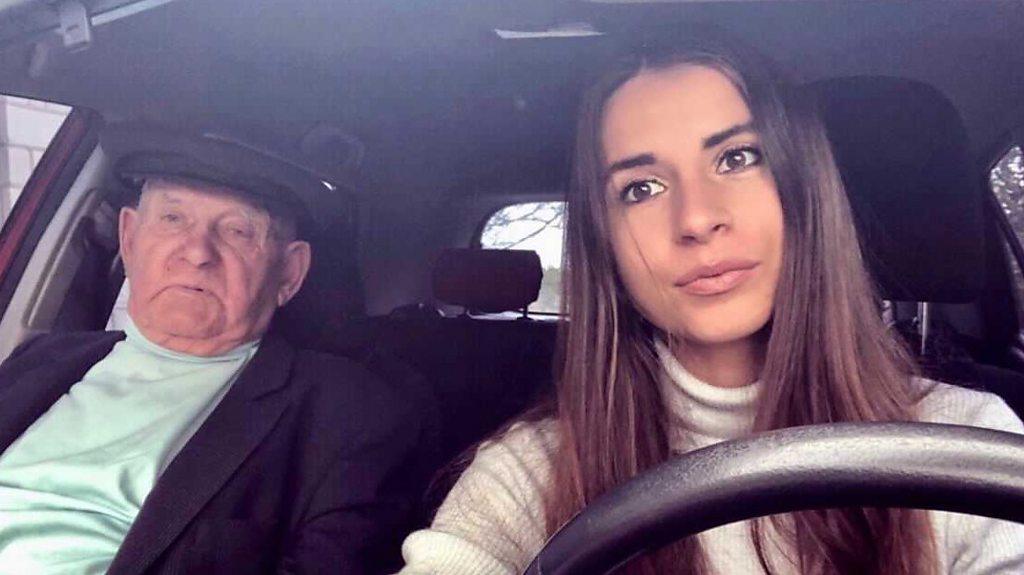Ukrainian refugee family tells of language struggle
- Published
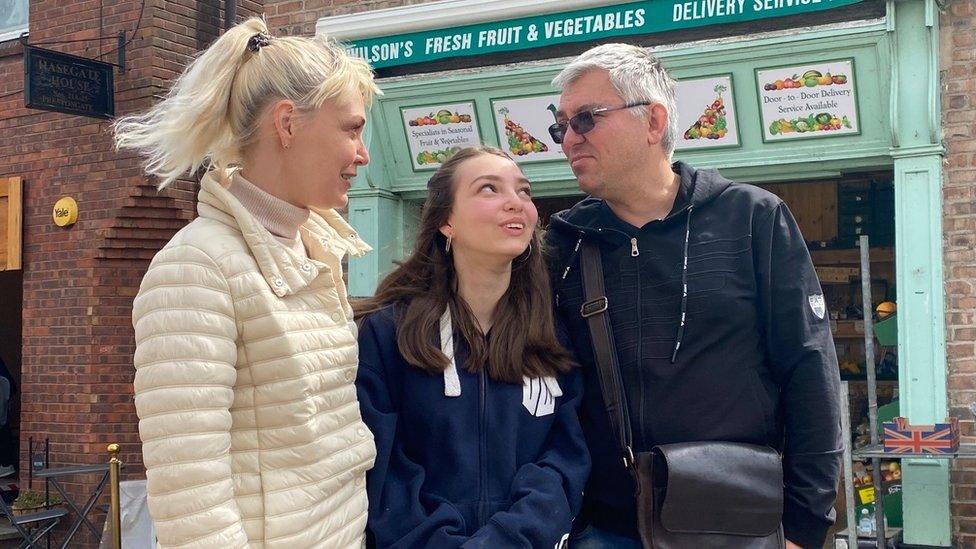
Ninel, Mira and Andrey only arrived in Hessle, East Yorkshire, from war-torn Ukraine in April
As refugees fleeing the war in Ukraine find sanctuary across the UK, what new problems do they face after such a sudden and unexpected move from their homeland?
The members of one family who have just arrived in the East Yorkshire town of Hessle say the language barrier is perhaps the biggest daily struggle as they try to rebuild their lives from scratch in a whole new country.
Andrey Dranyi, 43, his wife Ninel, 40, and their 13-year-old daughter Mira were welcomed by their sponsors in Hessle in April after escaping the central Ukraine city of Krivyy Rih - also the home of president Volodymyr Zelensky - as Russian missiles rained down.
Andrey says: "It's very difficult not being able to speak the language. But we are making efforts to learn English."
'Biggest obstacle'
The BBC, joined by a translator, accompanied the family to shops in Hessle town centre and saw a snapshot of the difficulties and frustrations faced by refugees unable to speak English - as well as random acts of kindness from local people.
"The biggest obstacle that stops us being able to move on is the language," admits Ninel, speaking through the translator. "I need a lot of medication and just explaining my condition to the doctor is difficult.
"We can't understand the names of things in shops. We wanted to buy tomato paste, but we got pure tomatoes. We just see the picture of tomatoes."
The family's sponsors interact with them using a combination of flash cards and Google Translate, but it's during their time out and about in the town that the language barrier proves most problematic.
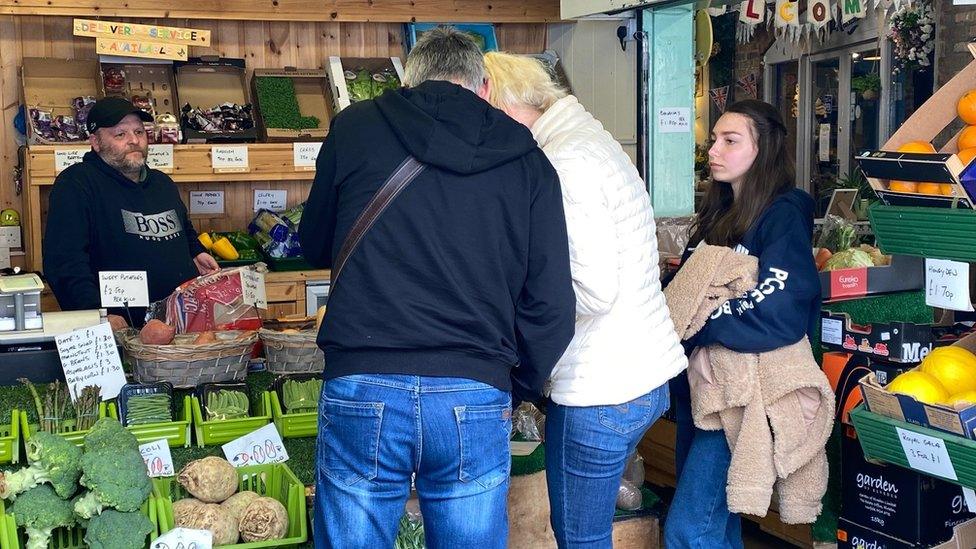
The Dranyi family in a Hessle greengrocers
The family calls in to The Crescent, a greengrocers in Prestongate, where owner Mark Wilson welcomes them with a smile but struggles to understand them.
Mark says: "I really feel for them. They've found themselves in an awful situation. They must really be feeling out of their comfort zone and frustrated."
In the past, Mark has used Google Translate and "facial expressions" to communicate with non-English speaking customers and, he adds: "A smile definitely helps."
Once outside again, Kim Jackson, from Villa Natura coffee shop, introduces herself and offers the family hot drinks. She will not accept payment.
Neither party understands the other's language, but the offer is made using hand signals - and is sealed with hugs.
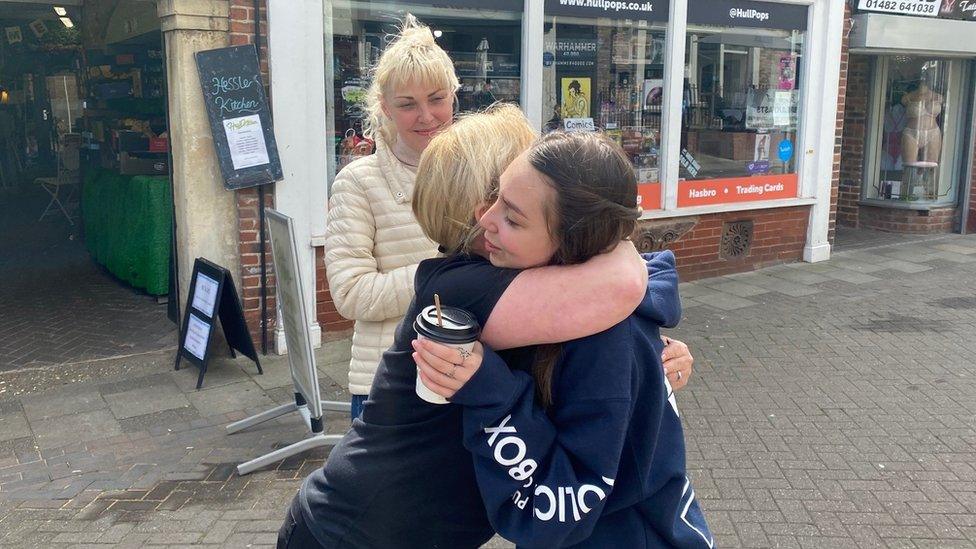
Coffee shop manager Kim Jackson hugs Ukraine refugee Mira Dranyi
Kim says: "It must be so hard for them arriving here and not being able to speak our language. It must have been horrendous what they've been through."
Mira, who will begin studying at secondary school in June, says she is "longing to be able to communicate".
"I am doing my best to improve," she adds.
The language problem is perhaps doubly frustrating because the Dranyis are so keen to tell their story of the war to as wide an audience as possible.
Andrey tells us he was working away, assembling cars in Poland, when the Russians attacked. His wife was informed of the invasion by her daughter's head teacher.
Ninel says: "We live on the 12th floor. I looked down and saw people loading up their cars and leaving. Then I heard explosions."
The explosions were missiles striking a nearby military installation, destroying Ukrainian tanks, she says.
At first, the family was too scared to flee.
Ninel says: "There was a lot of shooting. It was too dangerous to leave. We sheltered underground in our apartment."
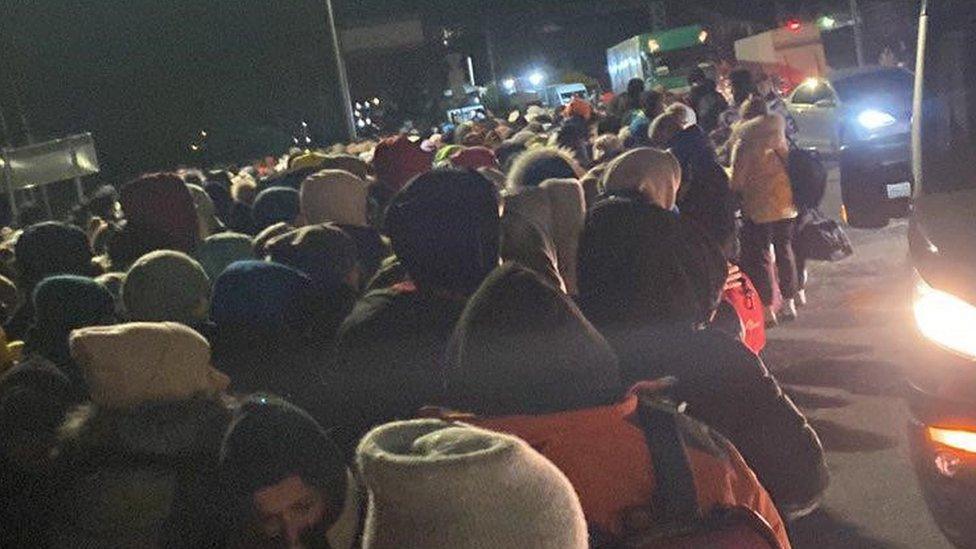
Ninel Dranyi took this photo while fleeing Ukraine
Due to her health condition Ninel needs regular medication, but with medicine and food supplies struggling to get through, she decided to flee with her daughter to Poland, where they were reunited with Andrey.
They then made contact, via British volunteers in Poland, with their sponsors in Hessle.
Both Andrey and Ninel have elderly parents who remain in Ukraine.
Ninel says: "My mum cannot move very far. She lives on the 12th floor of an apartment block. During air raids, the lifts are switched off. She has nowhere to hide."
Andrey adds: "We are very upset. It was totally unexpected this aggression. It was against all logic."
'Traumatic experiences'
The family's sponsors in Hessle, Mark and Liane Kensett, have previously helped refugees fleeing other other war zones, including Afghanistan and Syria.
Mark says the language barrier is proving "stressful".
"Negotiating online forms and paperwork is challenging. Mira is due to start school in a couple of weeks. The school has a teacher who speaks Russian, but clearly they can't be following Mira and a handful of others around school."
But despite the language difficulties, Mark says the family has received a "warm welcome" from people in East Yorkshire.
Meanwhile, Peter Oluotch, from the Hull-based Humber Community Advice Services, says the Dranyis are certainly not alone in finding the language barrier a big problem.
He says: "It's really challenging for people arriving in this country, especially when they are not English speakers. It's really important they are given support to learn the language so they can interact with others and integrate.
"Some people have been through some really traumatic experiences. We have seen this in people who have escaped from Afghanistan, Syria and more recently Ukraine," he adds.
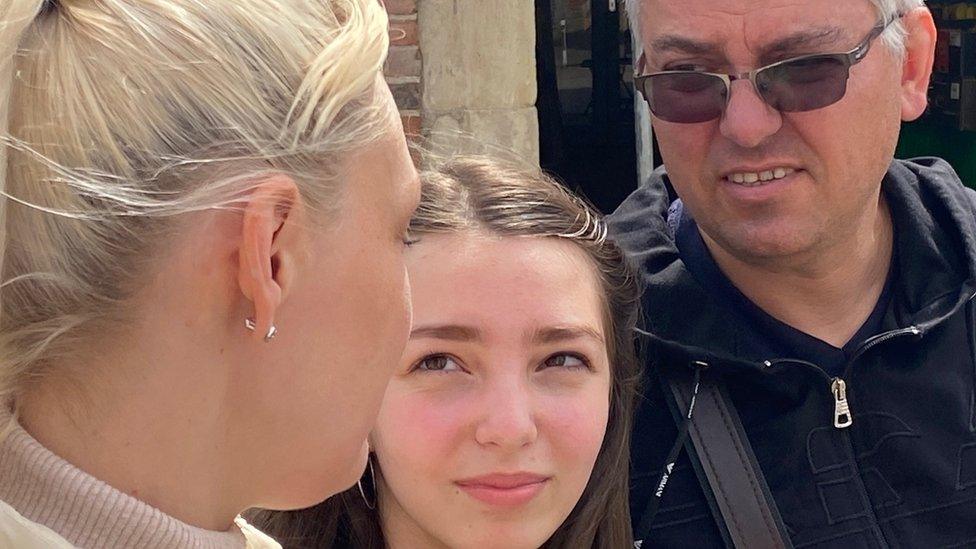
Andrey says all the family is "making efforts" to learn English as quickly as possible
With this in mind, East Riding of Yorkshire Council recently teamed up with Hull City Council to launch a helpline - on 01482 300 305 - with advisors who speak Ukrainian and Russian, as well as English, to assist people arriving in the county through the government's Homes for Ukraine scheme.
A council spokeswoman says: "Guests from Ukraine may also contact the East Riding Council via supportforukraine@eastriding.gov.uk, external for information to be translated. Much information is already provided in the three different languages."
Meanwhile, Andrey has thanked local residents in Hessle for their hospitality and their welcome.
He says all the family will continue to work on their English.
"From day to day we improve a little," he adds.
Follow BBC Yorkshire on Facebook, external, Twitter, external and Instagram, external. Send your story ideas to yorkslincs.news@bbc.co.uk or send video here.
Related topics
- Published12 May 2022
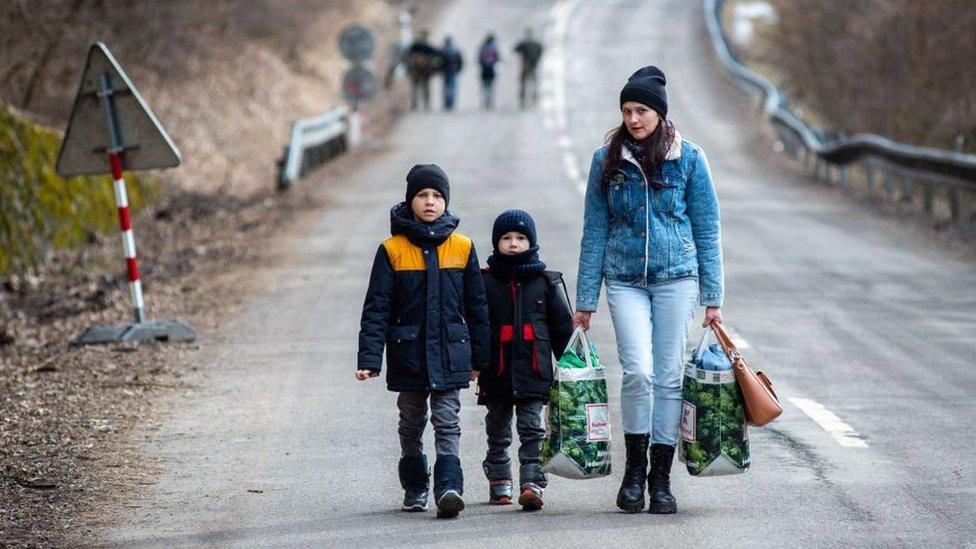
- Published4 May 2022
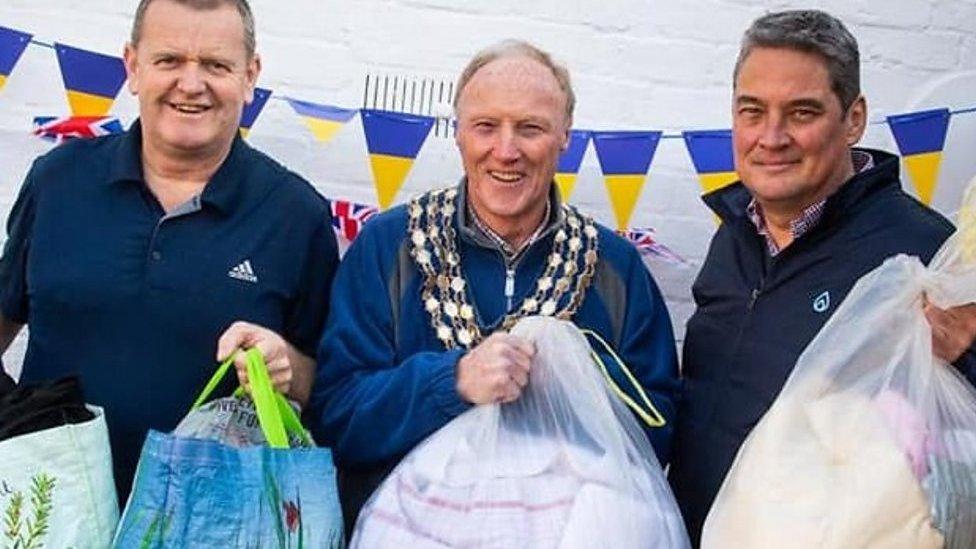
- Published29 April 2022
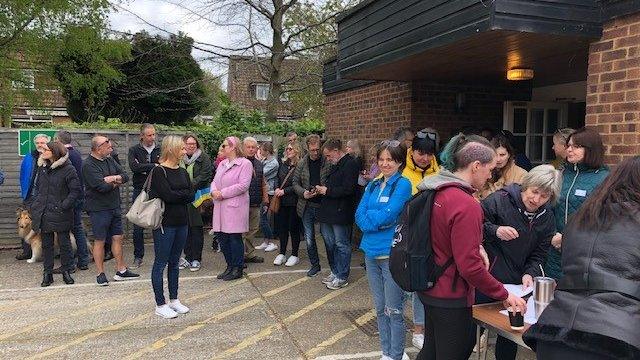
- Published23 April 2022
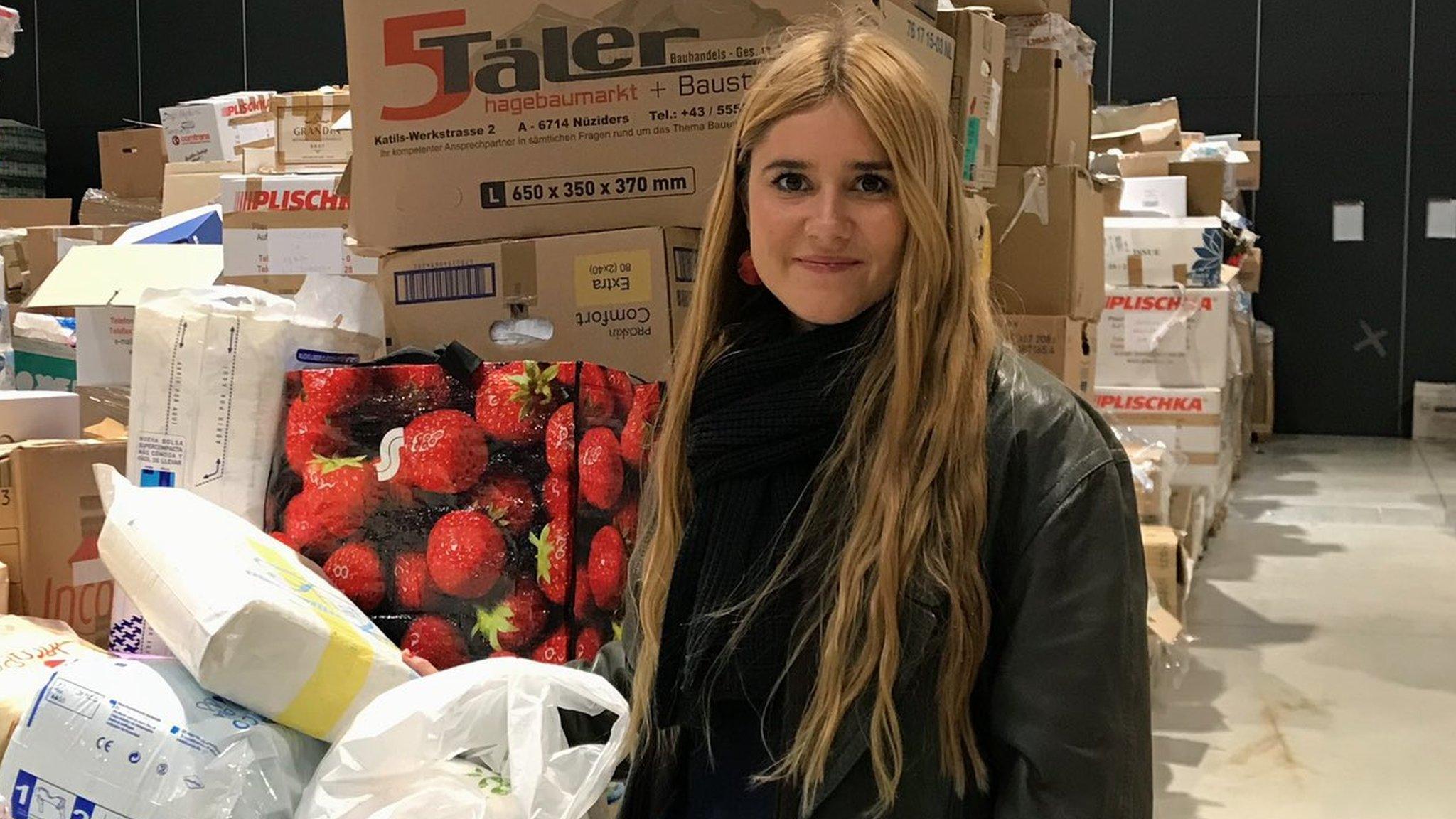
- Published9 May 2022
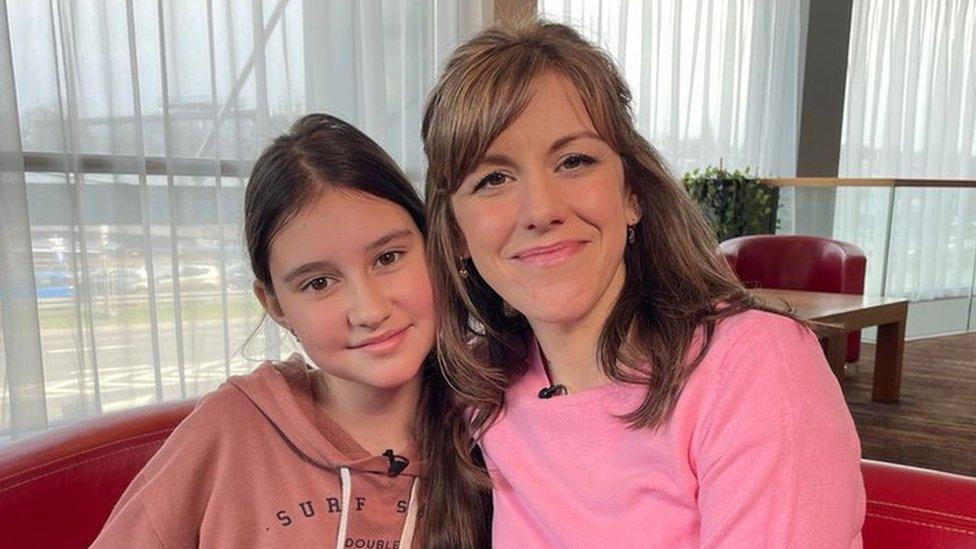
- Published29 March 2022
